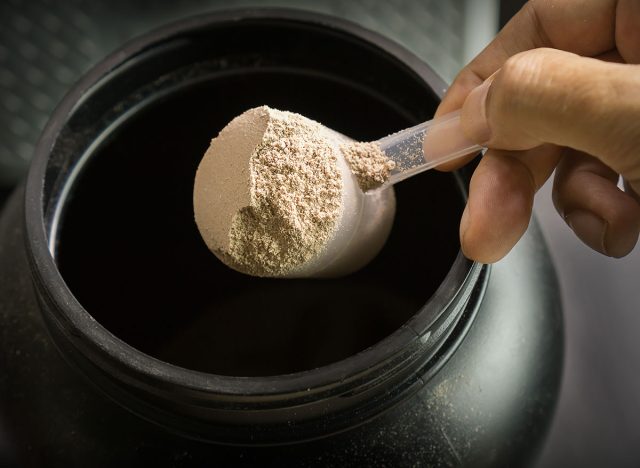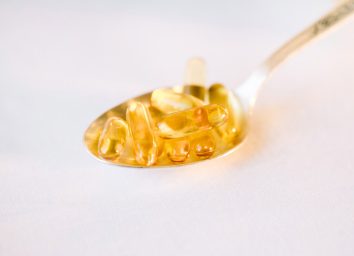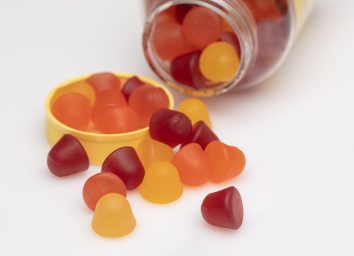The #1 Worst Supplement for Weight Loss, Says Dietitian

Setting weight loss goals for yourself and trying to achieve them in a healthy way can be a frustrating journey sometimes. Maybe you're not losing the pounds you'd hoped for, or maybe you've hit a plateau and don't know how to continue.
It may be tempting to find a weight loss supplement that can help speed along your process, but it's important to know which ones are actually helpful and which ones may just be a waste of time and money.
According to registered dietitian Blanca Garcia, RDN, one of the worst supplements for weight loss is one that requires a person to completely replace a meal.
"There is no supplement out there that can effectively provide all the nutrients nature has created for the body, so a complete replacement of a meal over an extended period of time can cause a person to lack certain nutrients and fibers, sometimes only found in whole foods," she says.
Why meal replacement supplements are not as great for weight loss as you may think

Meal replacement supplements usually don't have any fiber
Meal replacement shakes or powders are very common in the world of health and wellness, but their potential negative side effects can sometimes outweigh the positive.
As Garcia tells us, it's very difficult to get enough fiber with a meal replacement shake, and fiber is one of the most important components not only of weight loss but of maintaining overall health in general.
According to the Journal of Nutrition, consuming dietary fiber (along with a calorie deficit) is linked to weight loss in those who are obese or overweight.
The Mayo Clinic states that fiber can help with healthy weight loss in more ways than one. For example, consuming fiber is associated with more regular digestion and bowel movements, regulated blood sugar levels, and staying full for longer periods of time.
READ MORE: Dangerous Signs You're Not Eating Enough Fiber
You may end up consuming more calories
Oftentimes, we may have the intention of only consuming the meal-replacement shake, but the lack of nutrients, fiber, and whole foods may leave us feeling hungry.
In another article on weight loss shakes, Ana Reisdorf, MS, RD, a registered dietitian for Wellness Verge, tells Eat This, Not That! that meal-replacements aren't a sustainable method for weight loss. They may be high in calories, but with only protein as a digestion-slowing nutrient, these beverages may not make you feel satisfied after drinking them. As a result, you may end up gaining weight by reaching for more food on top of the shake that you drink.
The takeaway
Meal replacement supplements may be able to help some people boost their weight loss goals, but the potential side effects show that they may not be as effective as you hope.
If you're interested in incorporating these into your diet, we suggest you talk with a dietitian or doctor before doing so to see if it's the best thing for your goals.









